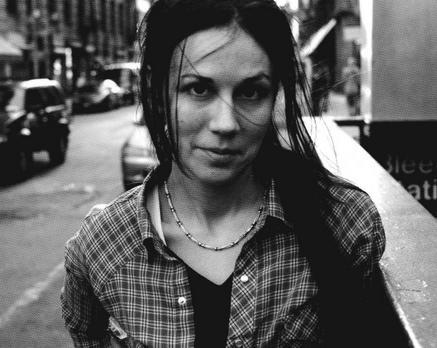"Turn on, tune in …"
https://webusers.imj-prg.fr/~leila.schneps/
grothendieckcircle/Spirituality/Spirituality19.pdf
"Turn on, tune in …"
https://webusers.imj-prg.fr/~leila.schneps/
grothendieckcircle/Spirituality/Spirituality19.pdf
For Rivka Galchen, who discussed Benedict
in The New Yorker on Wednesday, July 6, 2022.
Or: Phantasmagoria Meets Pandemonium
Part I: Phantasmagoria
Rebecca Goldstein on first encountering Plato —
| “I was reading Durant’s section on Plato, struggling to understand his theory of the ideal Forms that lay in inviolable perfection out beyond the phantasmagoria. (That was the first, and I think the last, time that I encountered that word.)” |
| “We tell ourselves stories in order to live….We interpret what we see, select the most workable of multiple choices. We live entirely, especially if we are writers, by the imposition of a narrative line upon disparate images, by the ‘ideas’ with which we have learned to freeze the shifting phantasmagoria which is our actual experience.” |
Part II: Pandemonium
Terry Teachout in Commentary on Oct. 1, 2014:
“When making art or writing about it, the aesthete
tries never to moralize. Nor will he look with favor
upon artists who do so, no matter whether their
particular brand of moralizing is religious or secular.
But he can and must be fully, intensely alive to the
moral force of art whose creators aspire merely to
make the world around us more beautiful, and in
so doing to pierce the veil of the visible and give us
a glimpse of the permanently true. That is his job:
to help make sense of the pandemonium amid which
we live.”
Rivka Galchen in The New York Times Sunday Book Review
issue of October 5, 2014 (online Sept. 30):
“The story describes honestly something that is,
which is very different from proposing what ought to be.”
See also Pandemonium in this journal.
Rivka Galchen, in a piece mentioned here in June 2010—
On Borges: Imagining the Unwritten Book
"Think of it this way: there is a vast unwritten book that the heart reacts to, that it races and skips in response to, that it believes in. But it’s the heart’s belief in that vast unwritten book that brought the book into existence; what appears to be exclusively a response (the heart responding to the book) is, in fact, also a conjuring (the heart inventing the book to which it so desperately wishes to respond)."
Related fictions
Galchen's "The Region of Unlikeness" (New Yorker , March 24, 2008)
Ted Chiang's "Story of Your Life." A film adaptation is to star Amy Adams.
… and non-fiction
"There is such a thing as a 4-set." — January 31, 2012
Catherine Elizabeth "Kate" Middleton, born 9 January 1982,
will marry Prince William of Wales on April 29th, 2011.
This suggests, by a very illogical and roundabout process
of verbal association, a search in this journal.
A quote from that search—
“‘Memory is non-narrative and non-linear.’
— Maya Lin in The Harvard Crimson , Friday, Dec. 2, 2005
A non-narrative image from the same
general time span as the bride's birthday—

For some context, see Stevens + "The Rock" + "point A".
A post in that search, April 4th's Rock Notes, links to an essay
on physics and philosophy, "The Discrete and the Continuous," by David Deutsch.
See also the article on Deutsch, "Dream Machine," in the current New Yorker
(May 2, 2011), and the article's author, "Rivka Galchen," in this journal.
Galchen writes very well. For example —
| Galchen on quantum theory—
"Our intuition, going back forever, is that to move, say, a rock, one has to touch that rock, or touch a stick that touches the rock, or give an order that travels via vibrations through the air to the ear of a man with a stick that can then push the rock—or some such sequence. This intuition, more generally, is that things can only directly affect other things that are right next to them. If A affects B without being right next to it, then the effect in question must be in direct—the effect in question must be something that gets transmitted by means of a chain of events in which each event brings about the next one directly, in a manner that smoothly spans the distance from A to B. Every time we think we can come up with an exception to this intuition—say, flipping a switch that turns on city street lights (but then we realize that this happens through wires) or listening to a BBC radio broadcast (but then we realize that radio waves propagate through the air)—it turns out that we have not, in fact, thought of an exception. Not, that is, in our everyday experience of the world. We term this intuition 'locality.' Quantum mechanics has upended many an intuition, but none deeper than this one." |
Continued from Good Friday —
The New Yorker , in the above excerpt, says of David Deutsch that
"his books have titles of colossal confidence
('The Fabric of Reality,' 'The Beginning of Infinity')."
The Fabric of Reality — A post from Good Friday —
| Friday, April 22, 2011
In memory of Hazel Dickens, two links — Weepin' like a willow, mournin' like a dove |
The Beginning of Infinity — Another Good Friday death—
Sidney Michaels, adapter of the 1962 play "Tchin-Tchin."
"At play's end they are Chaplinesque waifs living in the charmed circle
of innocents that includes saints, children, drunkards and madmen.
Subliminally, Tchin-Tchin is a Christian existential fable." — TIME
Smart* Jewish Girl

See Galchen's essay on Stevenson and Borges
on the last page of today's New York Times Book Review.
With Typewriter
|
Photo from Flickr.com |
See also Borges's "Lottery in Babylon."
Powered by WordPress